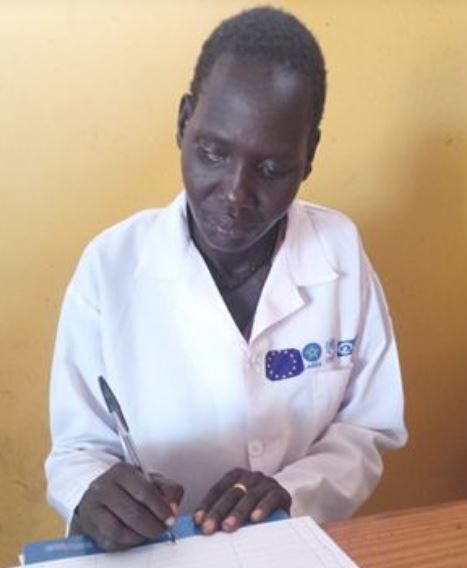Education in emergencies: from refugee girl to head of the school
12 September 2019"My life was full of surprises." says Rachel Nyatoni Roah with a smile. In the meanwhile Rachel is 32 years old and she has come a long way as a refugee, needing to flee her own country twice.

At the moment Rachel is the head of a school in a refugee camp in Ethiopia, but at the early age of eight she had to seek refuge with her aunt in Kenya after her parents died in the second Sudanese civil war.
Rachel had the opportunity to go to primary school, something that was not common for a refugee girl at that time. By the time she got back to her home country she finished secondary school and earned her degree in Clinical Nursing, but when the civil war burst out again in December 2013 her life became miserable.
Her husband was working in the capital Juba and they were unable to reach each other, which left her alone with two children and forced her to leave South Sudan for a second time. This time around, in the midst of a two months journey on foot, she gave birth to her third child before arriving to a refugee camp in Ethiopia.
The little knowledge that I had, helped me escape from many violence in my life and made me understand that the reason why women are vulnerable is lack of knowledge.
Inspired by her own story and understanding how important education was for her to empower herself, Rachel insisted her children to go to school as well. “We had no way to educate our children in South Sudan and here (in the refugee camp) Plan International was providing that. The little knowledge that I had, helped me escape from many violence in my life and made me understand that the reason why women are vulnerable is lack of knowledge.”
Managing her own school
But that was not enough for her, after getting in contact with Plan International’s project on Building Resilience in Crises through Education (BRiCE), funded by the EU (DG for Development and International Cooperation), Rachel immediately wanted to get involved. The project wants to ensure safe and quality educations by integrating the host community, creating a more sustainable educational system in the refugee camp. She was able to do several trainings to better understand school management and safe learning environments. Eventually making her the first woman school director in the refugee camp, beyond all traditional barriers and beliefs.
Now Rachel has become one of the heroines of the BRiCE project and in the future she will be able to do more capacity building trainings, strengthening the school to also undertake a gender sensitive school improvement plan (SIP).
Through her experiences, Rachel noticed that she was often treated different from boys and became aware of the particular challenges girls face in these circumstances. Securing girls’ access to education and advancing gender equality shapes the course of their lives. “Women had no power to complain about their rights because of a lack of knowledge but this opportunity gave me motivation and made me a role model to the community. There are girls and young women who are suffering now and that is why I am here to advocate for a safe learning environment, particularly for adolescent girls.”
Categories: Education, Emergencies


